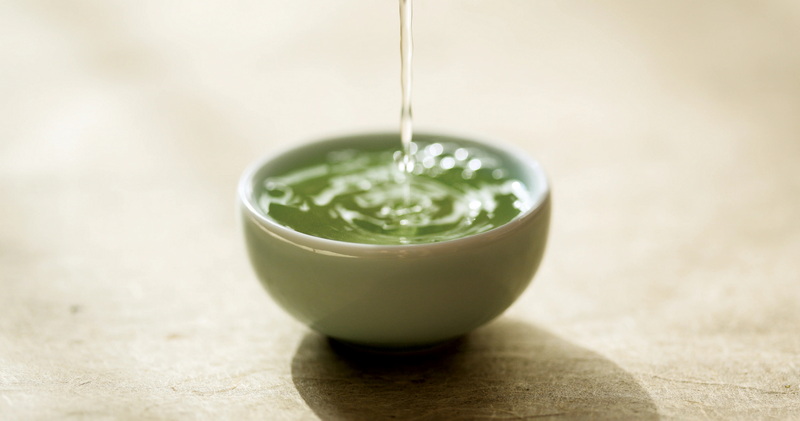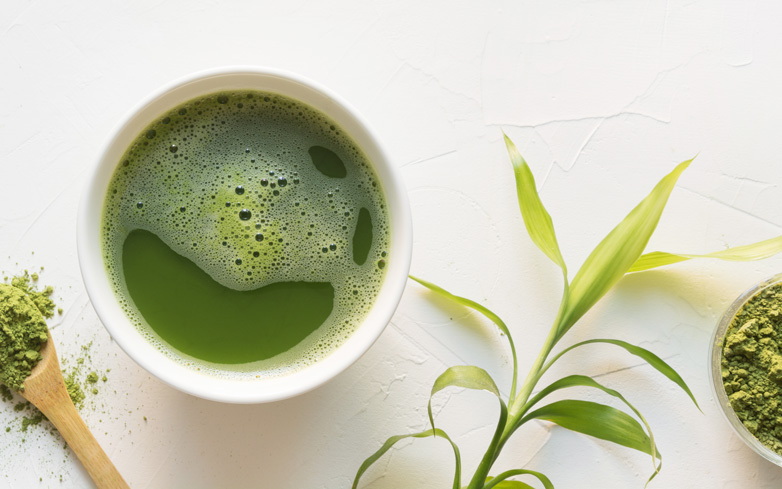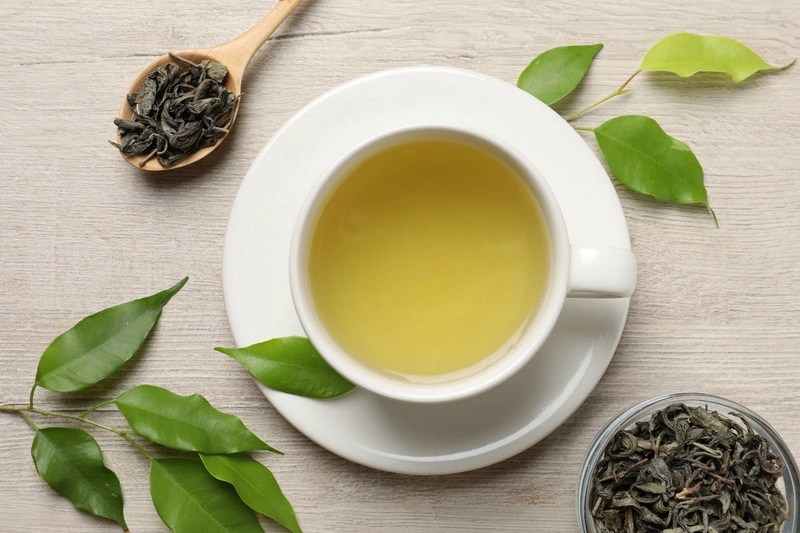Content Menu
● Understanding Green Tea Extract
>> Forms of Green Tea Extract
● Recommended Dosage of Green Tea Extract
● Health Benefits of Green Tea Extract
>> Additional Benefits
● Potential Risks and Side Effects
>> Interactions with Medications
● How to Choose a Quality Green Tea Extract
● Conclusion
● FAQ
>> 1. What is the best time to take green tea extract?
>> 2. Can I take green tea extract if I am sensitive to caffeine?
>> 3. Are there any interactions with medications?
>> 4. How long does it take to see results from green tea extract?
>> 5. Is green tea extract safe for everyone?
● Citations:
Green tea extract (GTE) has gained popularity as a dietary supplement due to its numerous health benefits, including weight loss, improved heart health, and enhanced cognitive function. However, determining the appropriate dosage is crucial for maximizing its benefits while minimizing potential side effects. This article delves into the recommended dosages of green tea extract, its health benefits, potential risks, and frequently asked questions.

Understanding Green Tea Extract
Green tea extract is derived from the leaves of the Camellia sinensis plant and is rich in polyphenols, particularly catechins such as epigallocatechin gallate (EGCG). These compounds are responsible for many of the health benefits associated with green tea.
Forms of Green Tea Extract
- Capsules: Convenient and easy to consume.
- Powder: Can be mixed with water or smoothies.
- Liquid: Often used in teas or as a supplement.
Each form has its advantages. For instance, capsules offer precise dosing, while powders can be more versatile in culinary applications.
Recommended Dosage of Green Tea Extract
The optimal dosage of green tea extract can vary based on individual health goals and the specific formulation of the supplement. Here are some general guidelines:
- For General Health: 250-500 mg per day is commonly recommended. This dosage typically provides around 100-300 mg of EGCG.
- For Weight Loss: Studies suggest higher doses may be effective. A range of 500-1000 mg per day has been shown to aid in weight management through increased fat oxidation and metabolic rate.
- For Specific Health Conditions:
- Cardiovascular Health: 379 mg per day has been linked to improved blood pressure and cholesterol levels.
- Cognitive Function: Around 336 mg daily may enhance memory and cognitive performance.
It's important to note that exceeding 800 mg of EGCG daily may increase the risk of liver toxicity, so caution is advised when considering higher doses.
Health Benefits of Green Tea Extract
Green tea extract is associated with a variety of health benefits:
- Antioxidant Properties: Rich in catechins, it helps combat oxidative stress and reduce inflammation. Antioxidants play a crucial role in neutralizing free radicals, which can damage cells and contribute to aging and diseases.
- Weight Management: Increases thermogenesis and fat oxidation, aiding in weight loss efforts. Research indicates that GTE can enhance metabolic rate by 3-4% over 24 hours, making it a useful tool for those looking to shed extra pounds.
- Heart Health: Can improve cholesterol levels and reduce blood pressure. Studies have shown that regular consumption of green tea can lower LDL cholesterol levels while increasing HDL cholesterol, contributing to overall heart health.
- Cognitive Enhancement: May improve brain function and protect against neurodegenerative diseases. The combination of caffeine and L-theanine found in green tea can enhance cognitive performance and mood.
- Skin Health: Antioxidants in green tea extract can improve skin appearance and reduce acne. Topical applications have been shown to reduce sebum production and inflammation associated with acne.
Additional Benefits
Beyond these primary benefits, green tea extract may also contribute to:
- Diabetes Management: Some studies suggest that GTE can improve insulin sensitivity and reduce blood sugar levels, making it a potential ally for those managing diabetes.
- Cancer Prevention: Preliminary research indicates that the antioxidants in green tea may help inhibit cancer cell growth. However, more extensive studies are needed to confirm these findings.
- Improved Athletic Performance: Some athletes use green tea extract for its potential to enhance endurance by increasing fat oxidation during exercise.

Potential Risks and Side Effects
While green tea extract is generally safe for most people when taken in moderation, there are some potential risks:
- Liver Toxicity: High doses (≥800 mg EGCG) have been linked to liver damage in rare cases. Symptoms include abdominal pain, jaundice, or nausea. It's essential to monitor any adverse reactions when starting supplementation.
- Caffeine Sensitivity: GTE contains caffeine; excessive intake can lead to anxiety, insomnia, or heart palpitations. Individuals sensitive to caffeine should consider decaffeinated options or limit their intake accordingly.
- Gastrointestinal Issues: Some users may experience nausea or stomach upset, especially if taken on an empty stomach. To mitigate this effect, it is advisable to take GTE with food.
Interactions with Medications
Green tea extract may interact with certain medications:
- Blood Thinners: GTE can enhance the effects of anticoagulants like warfarin, increasing the risk of bleeding.
- Stimulants: Combining GTE with other stimulants may amplify side effects such as increased heart rate or anxiety.
How to Choose a Quality Green Tea Extract
When selecting a green tea extract supplement, consider the following factors:
- EGCG Content: Look for products that specify their EGCG content on the label. Higher concentrations provide more significant health benefits.
- Purity and Quality: Choose products that are third-party tested for purity and potency. This ensures you are getting a product free from contaminants or fillers.
- Formulation: Depending on your preference for capsules, powders, or liquids, select a formulation that fits your lifestyle.
Conclusion
Green tea extract can be a valuable addition to a healthy lifestyle when taken at appropriate dosages. For most individuals, a daily intake of 250-500 mg is sufficient for general health benefits. Those seeking specific outcomes such as weight loss or improved cardiovascular health may benefit from higher doses but should consult with a healthcare provider to avoid potential side effects.
Incorporating green tea extract into your routine could lead to numerous health improvements; however, personal tolerance should always guide your dosage decisions.

FAQ
1. What is the best time to take green tea extract?
Taking green tea extract with food can help minimize gastrointestinal discomfort and enhance absorption.
2. Can I take green tea extract if I am sensitive to caffeine?
Yes, but it's advisable to choose decaffeinated versions or limit intake if you are sensitive to caffeine.
3. Are there any interactions with medications?
Green tea extract may interact with certain medications, particularly blood thinners and stimulants. Consult your healthcare provider before starting any new supplement.
4. How long does it take to see results from green tea extract?
Results can vary based on individual factors; however, many people report noticeable effects within a few weeks of consistent use.
5. Is green tea extract safe for everyone?
While generally safe for most adults, individuals with liver disease or those taking specific medications should consult their doctor before use.
Citations:
[1] https://www.canada.ca/en/health-canada/services/food-nutrition/public-involvement-partnerships/notice-modification-list-permitted-supplemental-ingredients-permit-use-green-tea-extract-supplemental-ingredient-foods/document.html
[2] https://www.mountsinai.org/health-library/herb/green-tea
[3] https://www.alamy.com/stock-photo/green-tea-extract.html
[4] https://renew.org/video/?vid=zEUJ91-G6we
[5] https://www.zhounutrition.com/blogs/the-greatness-files/green-tea-extract-q-a
[6] https://health.clevelandclinic.org/green-tea-extract-a-better-way-to-boost-energy-or-not
[7] https://www.healthline.com/nutrition/10-benefits-of-green-tea-extract
[8] https://examine.com/supplements/green-tea-extract/
[9] https://consensus.app/questions/much-green-take-daily/
[10] https://pmc.ncbi.nlm.nih.gov/articles/PMC7009618/
[11] https://www.webmd.com/vitamins/ai/ingredientmono-960/green-tea
[12] https://www.peacehealth.org/medical-topics/id/hn-2102007
[13] https://www.drugs.com/npp/green-tea.html
[14] https://www.healthline.com/nutrition/egcg-epigallocatechin-gallate
[15] https://pubmed.ncbi.nlm.nih.gov/29580974/
[16] https://us.sfihealth.com/gte-green-tea-extract
[17] https://www.istockphoto.com/de/bot-wall?returnUrl=%2Fde%2Fphotos%2Fgreen-tea-extract
[18] https://www.youtube.com/watch?v=t4Gcrc9lMog
[19] https://tigogreen.de/en/greentea-greentea-extract/
[20] https://www.shutterstock.com/search/green-tea-treatment
[21] https://www.youtube.com/watch?v=EixPbyASHso
[22] https://www.healthline.com/nutrition/10-benefits-of-green-tea-extract
[23] https://nutritionfacts.org/video/can-green-tea-help-treat-cancer/
[24] https://examine.com/supplements/green-tea-extract/
[25] https://askthescientists.com/green-tea-extract/
[26] https://www.urmc.rochester.edu/encyclopedia/content?contenttypeid=19&contentid=greenteaextract
[27] https://www.elo.health/articles/green-tea-extract-supplements/
[28] https://www.medicalnewstoday.com/articles/269538
[29] https://www.mountsinai.org/health-library/herb/green-tea
[30] https://www.nccih.nih.gov/health/green-tea
[31] http://www.greenskybio.com/blog5/best-answers-to-7-key-questions-about-green-tea-extract.html
[32] https://www.vumc.org/poison-control/toxicology-question-week/march-12-2021-what-are-adverse-effects-green-tea-extract






























